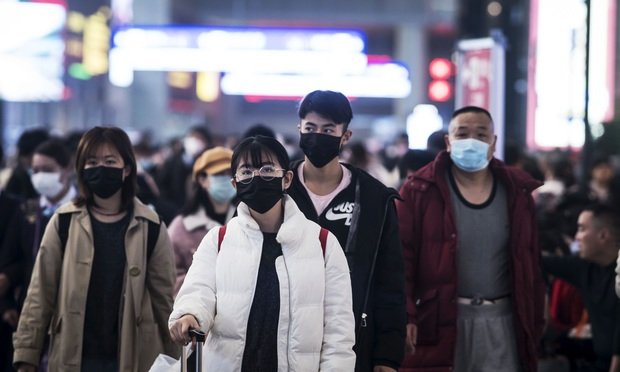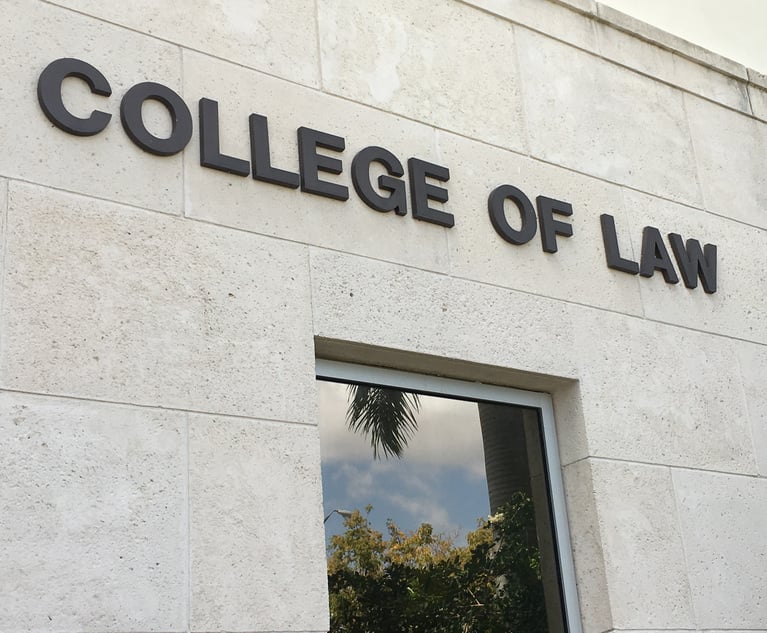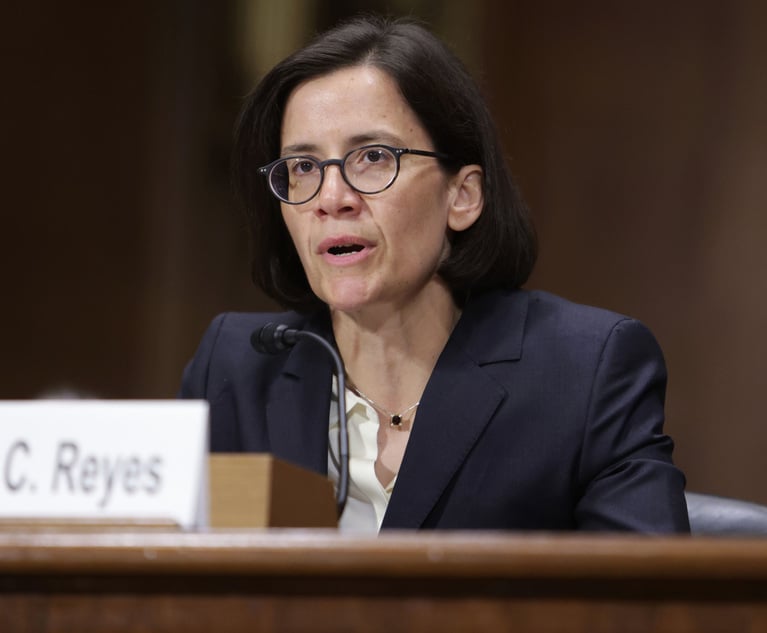Will Insurance Cover the Coronavirus for Clients and Lawyers Traveling?
With continued flight cancellations and imposed travel restrictions, it's important to know what travel insurance covers.
February 25, 2020 at 01:00 AM
6 minute read
 More than 2,000 people have died from the coronavirus worldwide. (Photo: Qilai Shen)
More than 2,000 people have died from the coronavirus worldwide. (Photo: Qilai Shen)As reported cases of coronavirus increase, the outbreak is stoking fears among travelers.
Several countries, including the U.S., have imposed travel restrictions that include quarantines to contain the virus. At least 73 airlines have canceled or limited flights to China. And now cruise lines have begun to take notice following a recent outbreak on a ship in Japan.
Given these developments, clients and their lawyers may be wondering whether travel insurance will protect them in case they cancel their trip, become sick while abroad, or if their flight is grounded.
They need to understand that most travel policies doesn't protect them from everything. So it helps to find out ahead of time what is and isn't covered.
Cancellation coverage? Don't count on it
Tour operators and travel insurance brokers are reporting an increasing number of requests from customers asking to change their travel plans. Meanwhile, many U.S. airlines, including United, America and Delta, have canceled several flights to China.
Travelers may be surprised to learn that in either situation, their travel policy probably won't cover them.
Most travel insurance is designed to protect travelers in case they need to cancel a trip, if they lose belongings, or require medical attention. But for cancellations related to coronavirus, only certain reasons qualify. Here's a breakdown.
Airline cancels flight: Not usually covered. Reimbursing a canceled flight is generally the responsibility of the airline — not the insurer. The same goes for cruise lines, rail companies or any other transportation provider that cancels because of coronavirus or any other reason.
That doesn't necessarily mean the transportation provider will cover all expenses. Airlines, for example, are not required to refund canceled flights and may limit the extent of the reimbursement. Fare policies vary, so it's a good idea for travelers to review them before booking a flight.
Traveler chooses to cancel a trip: Not covered. Travel insurance will cover consumers who have to cancel their trip for reasons including adverse weather, a natural disaster, jury duty, an act of terrorism, or the travel company going out of business. But it won't protect travelers who cancel because they are worried about the coronavirus.
Traveler contracts coronavirus and has to cancel: Covered. Travelers are protected if they have to cancel a trip because of personal sickness or injury, or the sickness, injury or death of an immediate family member.
Quarantine: Covered. Most standard policies will cover cancellation or interruption if the traveler is placed under quarantine, or if the destination is placed under a mandatory evacuation.
Although standard policies don't cover all cancellations, some travel policies offer "cancel any reason" provisions or flight delay benefits that will provide reimbursement. Again, here's where reading the fine print comes in.
Illness protection — it's in the details
The good news for consumers is that most policies protect travelers who become sick while abroad. But the details of the policy matter.
Travel insurance is intended to cover medical costs abroad. As long as the policy includes medical coverage, the traveler is protected should he or she require medical care, hospitalization, or a medical evacuation while in a foreign country.
But travelers need to understand the stipulations of their policy from the outset. Here are some considerations:
Primary or secondary payer? A secondary payment policy is designed to pay for costs that the traveler's personal insurance does not cover. This may mean the traveler has to pay deductibles and co-pays out of pocket. A primary payment policy, however, serves as the first payer for any medical costs that arise.
Limits. All policies have a maximum they will pay, and many also have deductibles and other limitations.
Exclusions. Policies may exclude coverage for certain situations, such as risky activities. So thrill-seekers like skydivers and bungee jumpers might be out of luck.
Supplemental policies. A separate health policy, or rider, may be helpful for covering things a standard policy might exclude (like that skydiving expedition). A traveler may be able to purchase a rider to extend coverage in case of injury. A rider for foreign medical care coverage might also be useful, although those types of provisions are rare.
In most cases, a standard travel policy is sufficient. There are several types of policies with different levels and coverage for all sorts of travel. Some policies may be specific to cruises, where it may become critical to evacuate to a hospital. Other policies are geared more toward adventure travel.
Riders are meant to provide coverage that's missing from a primary policy. So if a policy excludes coverage for dangerous activities such as bungee jumping, a traveler may be able to purchase a rider to extend coverage in case of injury.
Reality check
The headlines may paint a scary picture of the coronavirus, but it helps for U.S. travelers to keep facts and figures in perspective.
As of early February, there have been more than 37,500 confirmed cases of coronavirus, according to the World Health Organization. Of those, 37,251 were reported in China, where the outbreak originated.
And although some U.S. airlines have canceled flights, bear in mind that almost all of these cancellations involve flights to and from China. The U.S. has temporarily barred entry for anyone traveling from China who isn't a U.S. citizen, permanent resident or immediate family member of either.
Travelers planning a trip to the Western Pacific region may want to give more thought to their insurance coverage. For travelers who are headed anywhere else in the world, chances are they'll be in good shape with a standard policy.
The key is for travelers to determine their actual risk, understand what they are trying to cover, and then find a policy that accomplishes that.
NOT FOR REPRINT
© 2025 ALM Global, LLC, All Rights Reserved. Request academic re-use from www.copyright.com. All other uses, submit a request to [email protected]. For more information visit Asset & Logo Licensing.
You Might Like
View All
Justified Termination Does Not Bar Associate Attorney From Unemployment Benefits, State Appellate Court Rules
5 minute read
Florida Law Schools Are Seeing a Bump in Applications for 2025, After Recent Declines at Flagship Schools
3 minute read
Federal Judge Warns of 'Serious Sanctions' on FDIC Over Document Retention
3 minute read
Hogan Lovells, Jenner & Block Challenge Trump EOs Impacting Gender-Affirming Care
3 minute readTrending Stories
Who Got The Work
J. Brugh Lower of Gibbons has entered an appearance for industrial equipment supplier Devco Corporation in a pending trademark infringement lawsuit. The suit, accusing the defendant of selling knock-off Graco products, was filed Dec. 18 in New Jersey District Court by Rivkin Radler on behalf of Graco Inc. and Graco Minnesota. The case, assigned to U.S. District Judge Zahid N. Quraishi, is 3:24-cv-11294, Graco Inc. et al v. Devco Corporation.
Who Got The Work
Rebecca Maller-Stein and Kent A. Yalowitz of Arnold & Porter Kaye Scholer have entered their appearances for Hanaco Venture Capital and its executives, Lior Prosor and David Frankel, in a pending securities lawsuit. The action, filed on Dec. 24 in New York Southern District Court by Zell, Aron & Co. on behalf of Goldeneye Advisors, accuses the defendants of negligently and fraudulently managing the plaintiff's $1 million investment. The case, assigned to U.S. District Judge Vernon S. Broderick, is 1:24-cv-09918, Goldeneye Advisors, LLC v. Hanaco Venture Capital, Ltd. et al.
Who Got The Work
Attorneys from A&O Shearman has stepped in as defense counsel for Toronto-Dominion Bank and other defendants in a pending securities class action. The suit, filed Dec. 11 in New York Southern District Court by Bleichmar Fonti & Auld, accuses the defendants of concealing the bank's 'pervasive' deficiencies in regards to its compliance with the Bank Secrecy Act and the quality of its anti-money laundering controls. The case, assigned to U.S. District Judge Arun Subramanian, is 1:24-cv-09445, Gonzalez v. The Toronto-Dominion Bank et al.
Who Got The Work
Crown Castle International, a Pennsylvania company providing shared communications infrastructure, has turned to Luke D. Wolf of Gordon Rees Scully Mansukhani to fend off a pending breach-of-contract lawsuit. The court action, filed Nov. 25 in Michigan Eastern District Court by Hooper Hathaway PC on behalf of The Town Residences LLC, accuses Crown Castle of failing to transfer approximately $30,000 in utility payments from T-Mobile in breach of a roof-top lease and assignment agreement. The case, assigned to U.S. District Judge Susan K. Declercq, is 2:24-cv-13131, The Town Residences LLC v. T-Mobile US, Inc. et al.
Who Got The Work
Wilfred P. Coronato and Daniel M. Schwartz of McCarter & English have stepped in as defense counsel to Electrolux Home Products Inc. in a pending product liability lawsuit. The court action, filed Nov. 26 in New York Eastern District Court by Poulos Lopiccolo PC and Nagel Rice LLP on behalf of David Stern, alleges that the defendant's refrigerators’ drawers and shelving repeatedly break and fall apart within months after purchase. The case, assigned to U.S. District Judge Joan M. Azrack, is 2:24-cv-08204, Stern v. Electrolux Home Products, Inc.
Featured Firms
Law Offices of Gary Martin Hays & Associates, P.C.
(470) 294-1674
Law Offices of Mark E. Salomone
(857) 444-6468
Smith & Hassler
(713) 739-1250








